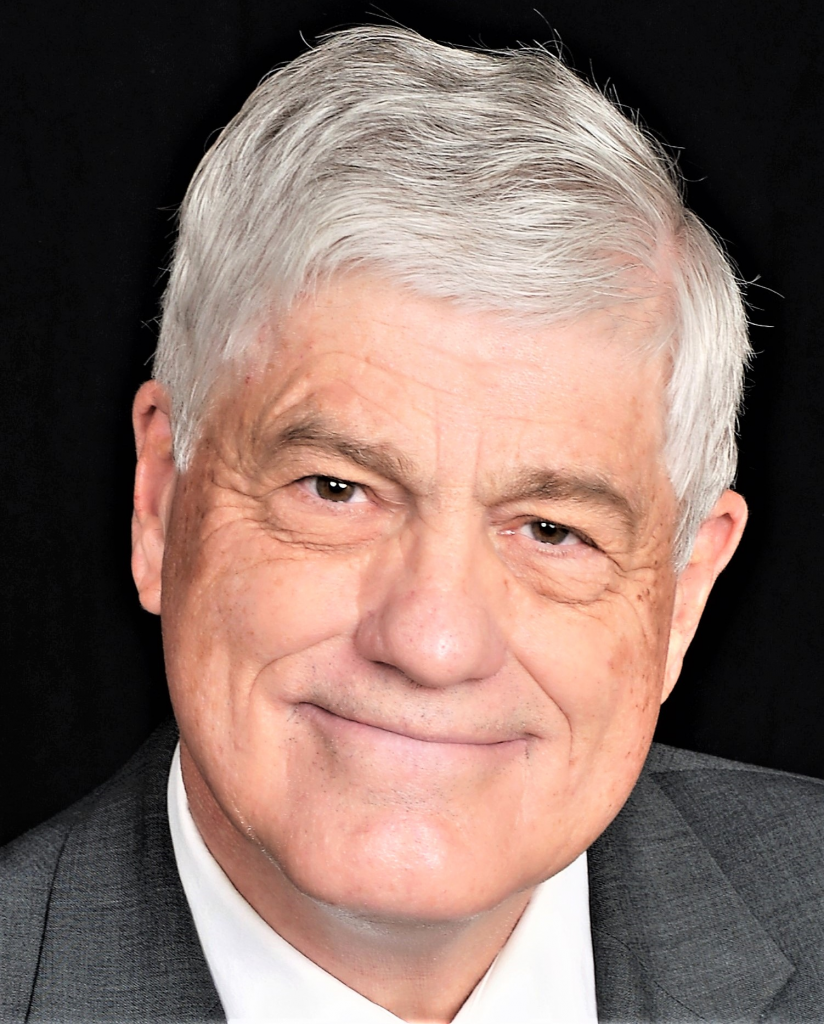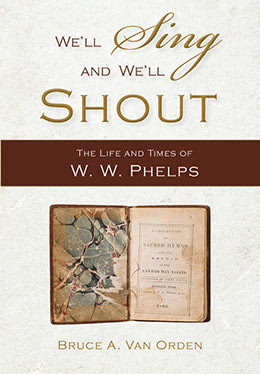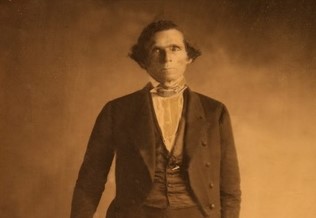Date June 7, 2021 (Season 3, Episode 3: 57:47 minutes). Click here to go to the BuzzSprout version of this Speak Your Piece Episode. The above photograph is of W. W. Phelps, as he appeared in the early 1850s; courtesy of Dr. Bruce Van Orden.
Podcast Content:
Drawing on decades of research and analysis, Dr. Bruce Van Orden offers the “life and times” of Willam Wines Phelps (1792-1872), one of the LDS Church’s and early Utah’s most influential figures. In this fast paced interview Van Orden weaves a myriad of new details and insights regarding a man who worked “shoulder to shoulder” with LDS Church founder Joseph Smith, and justifiably could be described as a fellow creator of early Mormonism. Phelps was an intellect, chronicler, journalist, master printer (he brought the first printing press to Utah), doctrinal provocateur and a political strategist (he was the ghost writer for Smith’s 1844 U.S. Presidential platforms and publications). Besides all of this, he was a lawyer, a poet, a hymnographer–with 15 hymns in the current LDS hymnal–and was Utah’s first official weatherman/meteorologist.
Podcast Episode:
Phelps’ life story serves as something of a “hinge,” between pre-Utah Mormonism under Joseph Smith, and the more pragmatic and geographically expansive church under Brigham Young. Readers and listeners will gain a deeper understanding of the religious devotions, the bold political worldviews and the millennial “fire in the bones” convictions that permeated early Anglo-American Utah. A state of mind that, in less than a decade, would come in conflict with a much stronger and more determined United States.
As a longstanding member of the Council of Fifty, and as first Speaker of the House in the Provisional State of Deseret (two sessions), Phelps contributed much of the written political thought encountered in early Utah, including the 1849-50 statehood application under a banner of “Deseret,” which name Van Orden believes was suggested by Phelps. Van Orden speaks of Phelps’ interactions with Brigham Young, his vision for an educational system for Utah (including the creation of the University of Deseret), his ouster from the Deseret News by editor Albert Carrington, his contributions to the creation of the Deseret Alphabet, and his long standing role as the serpent in the church’s endowment ceremony.

Guest Bio: Dr. Bruce Van Orden is an emeritus professor of Church History and Doctrine at Brigham Young University. He received his Ph.D., M.A and undergraduate degree from BYU. He has been a member of the LDS Church’s Curriculum Committee and has authored many articles and books on LDS History, including Prisoner for Conscience’ Sake: The Life of George Reynolds, as well as this biography of Phelps. Shortly after retiring, Van Orden and his wife spent seven years as LDS Church ministers to inmates at the Utah State Penitentiary in Draper.

Additional Resources & Readings:
We’ll Sing and We’ll Shout: The Life and Times of W.W Phelps — to buy a copy click here, we also recommend that you contact your local independent book dealer.
The Joseph Smith Papers Project (Church History Department, Church of Jesus Christ of Latter-day Saints), brief biography of Phelps and links to digitized primary sources, about and created by William Wines Phelps, click here.
Topics Discussed in Time:
- Minute: 00:50 – 05:00 Introduction: Retired BYU professor and historian Dr. Bruce Van Orden. Introduction to early Latter-day Saint leader William Wines Phelps through Van Orden’s published work We’ll Sing and We’ll Shout, The Life and Times of W.W. Phelps (2018).
- Minute: 05:40 – 08:55 Phelps is among the 10 most influential leaders in early Mormon history. He was an accomplished writer, printer and journalist, he published the first LDS newspaper The Evening and the Morning Star (1832-33) and published the first version of the LDS scripture Doctrine & Covenants known as the Book of Commandments, published by Phelps as “ZION: published by W. W. Phelps & Co., 1833.”
- Minute: 08:55 – 16:40 Van Orden discusses various sources in his research including the Joseph Smith Papers which is a digital collection (hosted by the Church of Jesus Christ of Latter-day Saints) of documents and manuscripts produced during the lifetime of Joseph Smith.
- Minute: 16:40 – 36:00 Phelps was a well known writer, politician and journalist before joining the Mormon church; his abilities in writing, editing, and all things related to the newspaper trade, made him an indispensable talent; he was a key expander of doctrinal concepts and publisher of church works; he was a self educated person who pursued knowledge in Latin, Greek, Hebrew, ancient history, geography, meteorology, and the Bible; finally, he was an early New York state citizen involved in politics including the Anti-Masonic movement which expanded into the broader Whig Party.
- Minute: 36:00 – 43:56 Dr. Van Orden shares how W.W. Phelps contributed to the creation of the University of the State of Deseret. This institution trained teachers and brought education to the youth of Zion by bringing books, the creation of curriculum and sharing Utah’s very unique Deseret Alphabet. Phelps wrote There is no End an original poem made for Brigham Young which then became the LDS hymn, If You Could Hie to Kolob.
- Minute: 44:56 – 47:00 Phelps gained approval to produce a Farmers’ Almanac, a publication that consisted of poetry and explanations of Mormon theology, alongside daily sunrises and sundowns, the movements of the moon, seasonal considerations and astronomical events.
- Minute: 47:00 – 52:00 Van Orden recited one of the poems written by W.W. Phelps had an enthusiasm for what Utah (then Deseret) symbolized. Fifteen hymns in the LDS hymn book are attributed to Phelps. Phelps was an adamant thinker and writer, who went so far as to invite in a General Conference sermon that American citizens from across the United States must join the LDS Church in Utah, to find the only true place of peace, this while the nation was in the middle of the Civil War (1861-1865).
- Minute: 52:00 – 56:00 Towards the end of his life, Phelps could not remember his name but could still remember the promises made to him by Joseph Smith (that he would live to see the Second Coming of Christ). He remains today as one of the most intelligent, gifted and expressive leaders in Mormon history to push forward the “latter-day” cause of the LDS Church.
Do you have a question or comment? Write us at “ask a historian” – askahistorian@utah.gov

